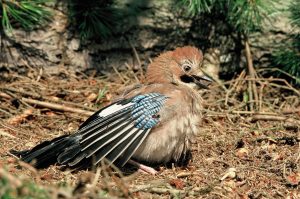Vine House Farm supplies organic vegetables to The Great British Wind Meal
The Great British Wind Meal takes place at Hugh Fearnley-Whittingstall’s River Cottage and Deli in Plymouth on Friday 29th November, and Vine House Farm are supplying organic cauliflowers, organic butternut squash, plus honey from bees which feasted on the farm’s famous sunflowers in the late summer months.
The event is to celebrate the wind industry’s role in helping to sustain Britain’s farming communities, with Renewable UK teaming up with energyshare and food campaigner Hugh Fearnley-Whittingstall to host a roundtable discussion and meal where the ingredients are from farms and suppliers powered by wind energy.
Nicholas Watts, the owner of Vine House Farm, is a keen advocate of renewable energy and is therefore going down to Plymouth to take part in the discussion, and of course for the fine meal.
Vine House Farm has 5 types of renewable energy on its land:
3 x 2 megawatts turbines which are part of the Deeping St Nicholas wind farm
2 x 75 kilowatts turbines at Baston Fen
200 kw of solar panels on farm buildings with more to be erected
The building where bird seed is packed is heated by the waste oil from the farm’s tractors
The building where the bird seed is mixed is heated by the waste heat from the 1000 ton refrigerated potato store
In addition to the above, Nicholas has operated a biomass boiler since 1980 to heat his house and office, and 2 years ago this was extended to include the farm shop, his daughter’s cake studio, a nearby flat and two farming museum halls which are also on the farm complex.
Nicholas commented: “I’ve long been in favour of renewable energy, and it goes hand-in-hand with the approach we take to farming here at Vine House, which is all about sustainability and a deep respect for the environment. I’m delighted to support the Great British Wind Meal, and very much look forward to sampling Hugh Fearnley-Whittingstall’s cooking.”
Maf Smith, Deputy CEO of RenewableUK expressed his gratitude: “On behalf of RenewableUK and energyshare I’d like to thank Vine House Farm for donating butternut squash, cauliflower and honey for our Great British Wind Meal. Their generosity has made this special meal possible, helping to spread the word about the benefits of wind power for food producers up and down the country.”
The event is to celebrate the wind industry’s role in helping to sustain Britain’s farming communities, with Renewable UK teaming up with energyshare and food campaigner Hugh Fearnley-Whittingstall to host a roundtable discussion and meal where the ingredients are from farms and suppliers powered by wind energy.
Nicholas Watts, the owner of Vine House Farm, is a keen advocate of renewable energy and is therefore going down to Plymouth to take part in the discussion, and of course for the fine meal.
Vine House Farm has 5 types of renewable energy on its land:
3 x 2 megawatts turbines which are part of the Deeping St Nicholas wind farm
2 x 75 kilowatts turbines at Baston Fen
200 kw of solar panels on farm buildings with more to be erected
The building where bird seed is packed is heated by the waste oil from the farm’s tractors
The building where the bird seed is mixed is heated by the waste heat from the 1000 ton refrigerated potato store
In addition to the above, Nicholas has operated a biomass boiler since 1980 to heat his house and office, and 2 years ago this was extended to include the farm shop, his daughter’s cake studio, a nearby flat and two farming museum halls which are also on the farm complex.
Nicholas commented: “I’ve long been in favour of renewable energy, and it goes hand-in-hand with the approach we take to farming here at Vine House, which is all about sustainability and a deep respect for the environment. I’m delighted to support the Great British Wind Meal, and very much look forward to sampling Hugh Fearnley-Whittingstall’s cooking.”
Maf Smith, Deputy CEO of RenewableUK expressed his gratitude: “On behalf of RenewableUK and energyshare I’d like to thank Vine House Farm for donating butternut squash, cauliflower and honey for our Great British Wind Meal. Their generosity has made this special meal possible, helping to spread the word about the benefits of wind power for food producers up and down the country.”


